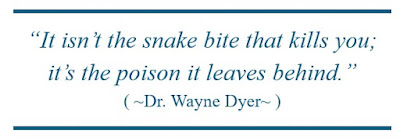And here we are again – the end of yet another month. Just 5 months left in 2025.
A few days
ago, when I was thinking about this—actually considering writing something
ahead of time for the end of the month—I noticed I was feeling a little low on
energy. That’s the best way I can describe it. I wasn’t depressed, just
unmotivated… and basically “low on energy.” I didn’t feel like doing anything.
Consulting
with my MI, I was told, “It’s natural to feel drained.” Sure, that may
be true. But given how much I’d “accomplished” this month, I would have thought
I’d be delighted – stoked, even – ready to charge forward. Energized rather
than depleted.
On
reflection, though, it wouldn’t be unusual to feel somewhat drained. Imagine an
athlete who’s just completed a race and comes in first. Yes, they’d be thrilled
– but also tired and physically spent. The difference with me, though, was that
I didn’t feel thrilled. Not at all.
Instead of
over-analyzing it, I accepted a simpler view. I reminded myself of a belief I
hold closely: the body is our ally. It often – if not always- gives us early
“signals” when we need to slow down. To pause. To take a breath. Smell the
roses, so to speak. Just enjoy the moment. And if not enjoy – then just be.
I often speak
of non-duality – that life is rarely just left or right, black or white, strong
or weak. So often, we are a paradox, holding seemingly opposite states at the
same time. It’s rarely one or the other. Life flows; it isn’t fixed.
So those few
days ago, that’s really all it was – my system gently nudging me to take a
breather. To pause and rest. There’s a lot coming up – many things to do. Some
exciting projects on the horizon. But first, take a moment to chill, to
reflect, to gather not just my energy – but also my thoughts.
And so I did.
I kept going, albeit more slowly these past few days. Definitely slower than
the rest of July – perhaps even slower than June.
And now, on
this very last day of July … less than an hour before I fold into August … here
I am, writing this journal entry. I had worried I might feel “down in the
dumps,” come 31st July. But not at all. No, I’m not bouncing off the walls,
raring to go. If I were, I might even suspect some mild bipolar episode! But
no, I’m not there either. I’m simply at peace. Somewhere just above ground zero
– neither flat nor flying high.
In fact,
August is one of my favorite months of the year. It’s the month my little angel
came into this world (in physical form), some 12 years plus ago. And beyond the
promising projects ahead, I’m genuinely looking forward to her birthday
celebration later this month. That alone makes me happy – if nothing else.
Less than an
hour to go before a new month rolls in. So I’ll end here with just this one
chill thought:





